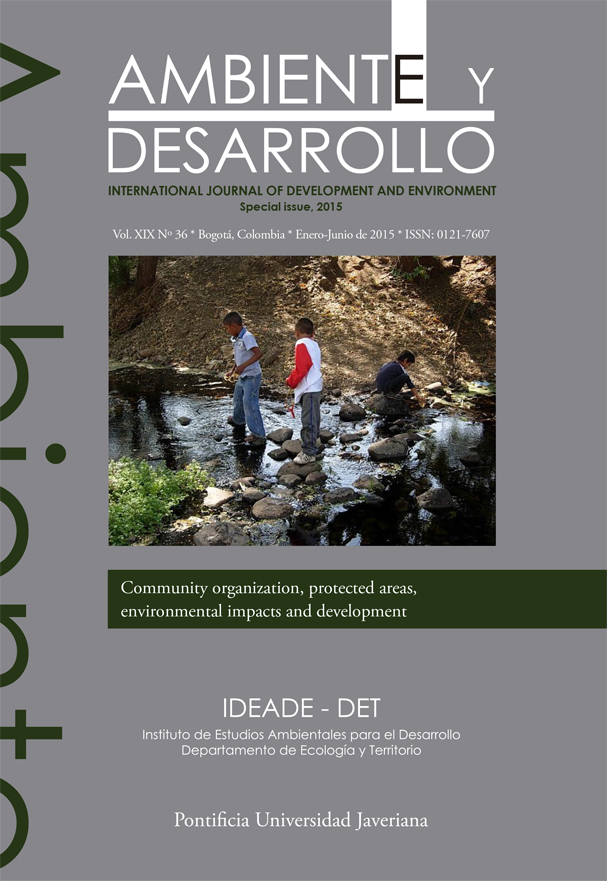Abstract
Mediante el método cualitativo se analiza cómo las organizaciones comunitarias para el riego y para el consumo humano del agua hacen frente a la problemática de la sustentabilidad de este recurso en la región Lerma-Chapala de Michoacán, México. Los resultados muestran, por un lado, que las organizaciones se basan en arreglos consuetudinarios, buscan la distribución equitativa del agua y tienen una función de control sobre esta en forma de autogestión, con recursos propios, capacidades, saberes y marcos institucionales comunitarios. Por otro lado, hay evidencias de desgaste y presión hacia estas formas de acción colectiva, debido a las dinámicas productivas del modelo económico imperante. Como conclusión se anotan los aportes de estas organizaciones para la sustentabilidad del agua en la región.
Ambiente y Desarrollo is registered under a Creative Commons Attribution 4.0 International Public License. Thus, this work may be reproduced, distributed, and publicly shared in digital format, as long as the names of the authors and Pontificia Universidad Javeriana are acknowledged. Others are allowed to quote, adapt, transform, auto-archive, republish, and create based on this material, for any purpose (even commercial ones), provided the authorship is duly acknowledged, a link to the original work is provided, and it is specified if changes have been made. Pontificia Universidad Javeriana does not hold the rights of published works and the authors are solely responsible for the contents of their works; they keep the moral, intellectual, privacy, and publicity rights.
Approving the intervention of the work (review, copy-editing, translation, layout) and the following outreach, are granted through an use license and not through an assignment of rights. This means the journal and Pontificia Universidad Javeriana cannot be held responsible for any ethical malpractice by the authors. As a consequence of the protection granted by the use license, the journal is not required to publish recantations or modify information already published, unless the errata stems from the editorial management process. Publishing contents in this journal does not generate royalties for contributors.


